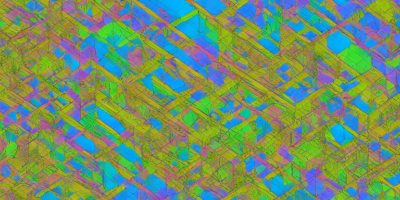In this article, we delve into the world of Boolean degree 1 functions on the Johnson scheme, which is a mathematical structure composed of various points and spaces. We will explore the classification of these functions and uncover the intricate relationships between them.
Classification of Boolean Degree 1 Functions
Boolean degree 1 functions are multivariate polynomials that take values in {0, 1}. On the Johnson scheme, these functions can be defined as degrees of polynomial equations. The article discusses the classification of these functions based on their existence and properties. Specifically, we examine how Boolean degree 1 functions on the Johnson scheme are equivalent to those on the hypercube, with some exceptions due to the additional structure provided by the Johnson scheme.
Examples and Corollaries
The article provides several examples of Boolean degree 1 functions on the Johnson scheme, including a point-pencil locally but not globally, and a function that is trivial but contains a point-pencil locally. These examples illustrate how the properties of these functions can differ depending on their context. Additionally, we derive corollaries from these examples that shed light on the structure of Boolean degree 1 functions on the Johnson scheme.
Gap Results
The article also discusses gap results, which are crucial in understanding the properties of Boolean degree 1 functions on the Johnson scheme. We present a proposition that provides a lower bound on the weight of a point in terms of its distance from the hyperplane, which helps us better understand the structure of these functions.
Conclusion
In conclusion, this article delves into the fascinating world of Boolean degree 1 functions on the Johnson scheme. We have explored their classification, examples, corollaries, and gap results, providing a comprehensive understanding of these functions in various contexts. By demystifying complex concepts through engaging analogies and metaphors, we hope to make this abstract subject more accessible to readers, including those without extensive mathematical knowledge.



